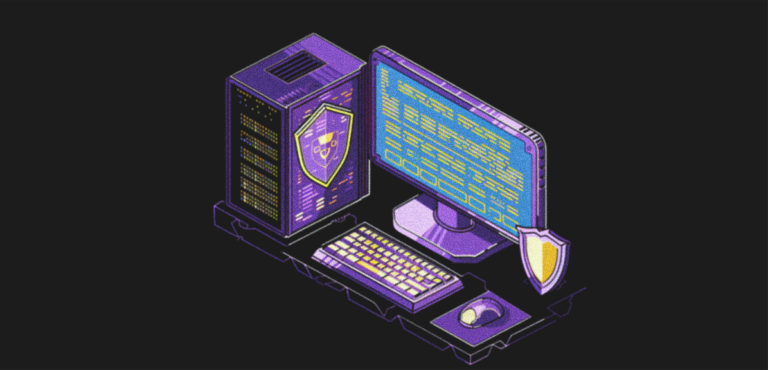
Do You Have These Five Essential Security Softwares?
Amid the rapid expansion of the digital landscape, robust cybersecurity measures have become increasingly crucial. Yet, all too often, computer users – both in personal and professional settings – underestimate the gravity of neglecting essential security tools. This oversight can have serious consequences, putting sensitive information, financial assets, and even the entire integrity of a computer system at risk.
In the workplace, the stakes are especially high. Employees who fail to prioritize security can inadvertently expose their organisation to devastating data breaches, malware infections, and other cyber threats that can cripple operations, damage reputations, and result in substantial financial losses. Moreover, the implications of lax security practices extend far beyond the confines of the workplace, potentially compromising the personal information of customers, clients, and stakeholders. Therefore, every computer user, regardless of their role or industry, must take proactive steps to safeguard their devices and the data they contain.
Antivirus software
We all know about the importance of antivirus software in today’s digital age. Venturing into the vast online world without it is like going to war without a weapon. It is our primary shield against cyber threats, including keyloggers, browser hijackers, Trojan horses, worms, rootkits, spyware, adware, botnets, phishing attempts, and ransomware attacks. The antivirus software acts as the first line of defence, vigilantly monitoring our systems, detecting and neutralizing threats, and providing the indispensable real-time protection shield through its automated scans.
Notable companies providing antivirus solutions, available in both free and paid versions, include AVG Technologies, Kaspersky, Malwarebytes, McAfee, Norton, and Trend Micro. While many antivirus providers present free basic versions of their software, these typically cover only fundamental antivirus and spyware defence. Upgrading to a paid subscription is often necessary for access to more sophisticated functionalities and security measures.
Backup software
Data is an essential asset for businesses. It is utilized to gain insights into customer behaviour, fulfil regulatory requirements, and generate new revenue opportunities, among other purposes. Given the crucial importance of data, having reliable backups is a key aspect of IT infrastructure. Backups are necessary for recovering files in various scenarios, including system crashes, ransomware attacks, or other data loss scenarios.
Backup software makes this process seamless and reliable. It allows you to make an exact copy of computer files. If files get lost, deleted on purpose or by accident, or if something bad happens, you can get the original files back. In an enterprise-level setup, backup software is installed on each computer, server, or node. It is configured to automatically back up specific files and folders on a scheduled routine or on-demand basis. Afterwards, the software transmits these backup copies over a network or the internet to a local backup server or a cloud-based storage server for safe storage. Some popular examples of widely used backup software are Acronis, IDrive, and Backblaze.
Password managers
In the modern workplace, managing various passwords for various accounts—from emails to cloud storage and confidential files—becomes a daunting task. A password manager conveniently steps in to streamline this process. It securely stores all your passwords in one location, needing just one master password for access. Beyond simplifying password management, it boosts security by creating strong, unique passwords for each account, thus safeguarding your professional data more effectively.
For security and convenience, various password managers utilise biometric data (like fingerprints or facial recognition) as an alternative to the master password. Some popular enterprise-level password managers include LastPass, Keeper, NordPass and Bitwarden. These platforms offer a range of features designed to enhance security and streamline password management across an organisation.
VPN services
A Virtual Private Network (VPN) is a powerful tool that enhances online security and privacy by encrypting the connection between a user’s device and the internet. This is particularly valuable in situations where sensitive or confidential information is being transmitted, such as in a professional or work-related context.
When using a VPN, the user’s internet traffic is routed through a secure, encrypted tunnel, preventing third parties from intercepting or inspecting the data flow. This obscures crucial details like the user’s IP address, geographic location, browsing history, and the specific devices or software being utilized. This level of anonymity and protection is crucial for safeguarding work-related activities, transactions, file transfers, and application usage.
Many organisations use VPNs to provide secure remote access to their internal networks. VPNs connect different locations and enable employees to access the private network securely from anywhere. Popular VPN solutions include NordLayer, ExpressVPN, OpenVPN, WireGuard, and ProtonVPN.
Full-disk encryption software
Full-disk encryption software is a powerful security tool that provides comprehensive protection for your computer’s data. Unlike selective file or folder encryption, this type of software encrypts an entire storage drive, safeguarding all the information stored on your device from unauthorized access.
The primary advantage of full-disk encryption is the robust protection it provides if your computer is lost or stolen. Even if the physical device falls into the wrong hands, the encrypted data will remain completely inaccessible and unreadable without the proper decryption key. Furthermore, full-disk encryption can be extended to external devices like flash drives and external hard drives, providing comprehensive coverage for all your data storage needs.
Popular examples of full-disk encryption software include Microsoft BitLocker for Windows, Apple FileVault for macOS, VeraCrypt as an open-source option, and Symantec Endpoint Encryption for enterprise use.
Distilled
If you find that your computer is missing any of the essential security tools outlined in this article, take immediate action. Investing in these protective tools is necessary to safeguard digital assets and ensure the integrity of your computer system. In addition, regular software updates can also help address vulnerabilities and protect against evolving cyber threats.